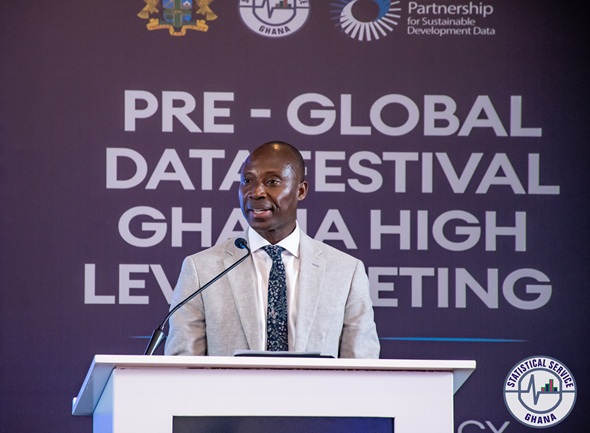Trust in Data, Trust in Development — Why Ghana’s Future Depends on Open Statistics

As Ghana deepens its democracy and pursues inclusive development, one truth is becoming clearer than ever: a nation that builds trust in data builds trust in its future.
The Ghana Statistical Service (GSS), in its message marking World Statistics Day, has underscored that public trust in data is not just a technical issue — it is the backbone of good governance, transparency, and accountability.
The GSS explained that when citizens believe in the accuracy and integrity of official data, they are more likely to support national programs, comply with government policies, and engage meaningfully in civic life. “Statistics are the voice of the people,” the Service stated, “and that voice must be trusted.”
The Power of Transparent Data
In many ways, the story of Ghana’s progress can be told through its data. From tracking inflation and unemployment to measuring literacy and poverty levels, statistics reveal where the country is advancing and where it is falling behind.
But for data to inspire confidence, it must be transparent, verifiable, and accessible to all. The GSS said that this means strengthening data collection systems, maintaining professional independence, and ensuring that the public can easily understand and use statistical information.
“Data is a public good,” the Service emphasized. “It belongs to everyone — not just to government offices or institutions.”
By making data open and comprehensible, the GSS believes citizens, journalists, researchers, and policymakers can use it to demand accountability and push for evidence-based action.
Building a Culture of Trust
Trust in data does not happen overnight. It grows when institutions are consistent, transparent, and inclusive in how they produce and communicate statistics. The GSS has therefore committed to strengthening collaboration across ministries, agencies, and local governments to ensure that official figures tell one coherent national story.
According to the Service, building a culture of trust also requires engaging citizens directly — encouraging them to participate in surveys, censuses, and community data initiatives. “When people see themselves in the numbers, they begin to believe in the process that produces them,” the GSS said.
The Link Between Data and Democracy
Reliable statistics are essential to democracy because they give citizens the power to question and confirm government actions. When data is hidden or manipulated, public confidence erodes — and without confidence, governance weakens.
The GSS stressed that credible data ensures fairness in resource allocation, accurate representation in development planning, and equitable delivery of social programs.
In the Service’s view, Ghana’s democratic journey and development ambitions will succeed only if guided by evidence and openness. “Facts are the foundation of freedom,” the GSS said, adding that data-driven decision-making keeps both leaders and citizens accountable to the truth.
A Shared Responsibility
The GSS also called on media organizations, civil society, academia, and the private sector to treat data as a shared national asset. By reporting accurately, interpreting responsibly, and avoiding misinformation, these partners can help sustain public trust in statistics.
As Ghana marks World Statistics Day, the GSS’s message is both simple and profound:
Trust in data is trust in democracy. When facts are respected, citizens are empowered, and when citizens are empowered, development becomes real.




